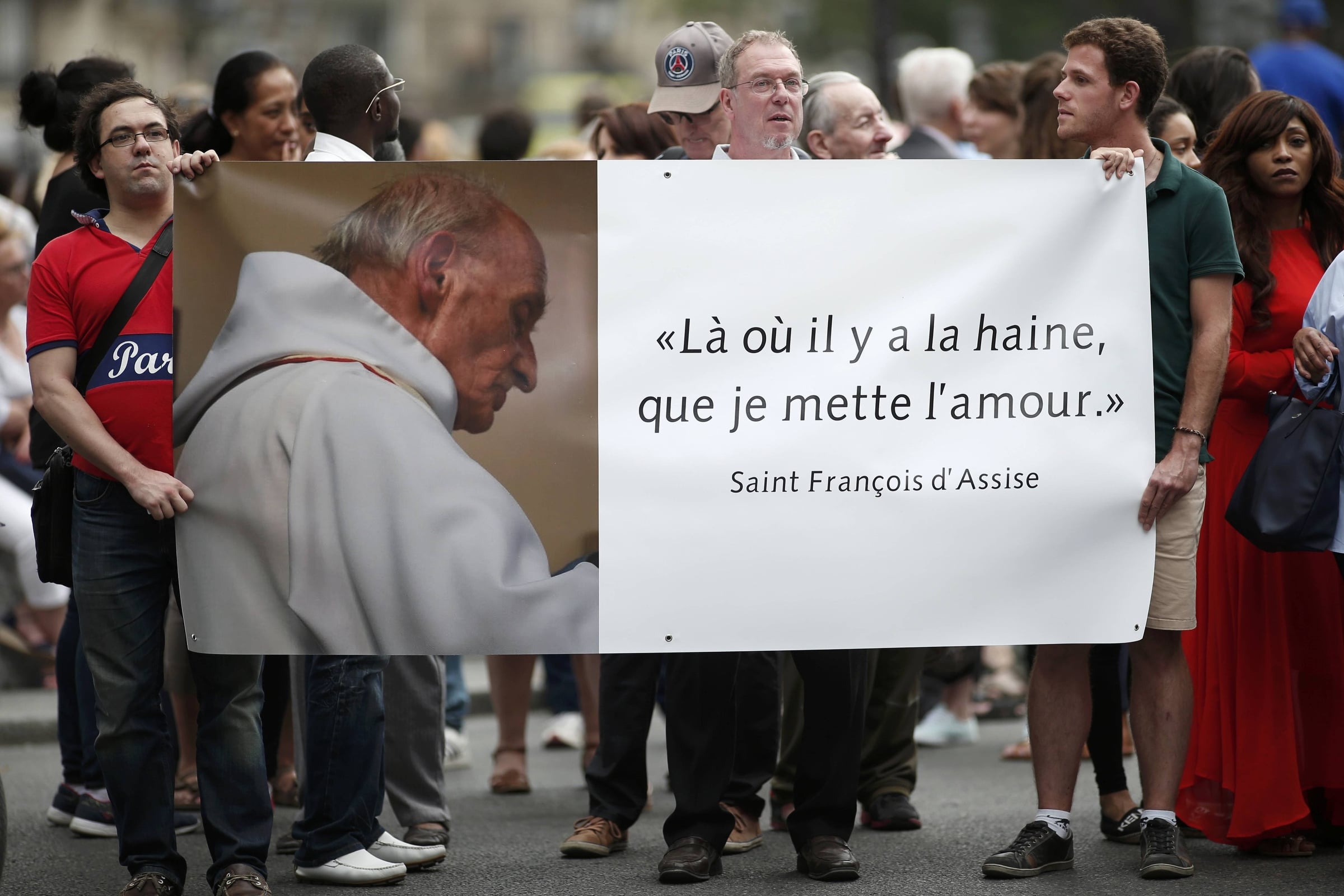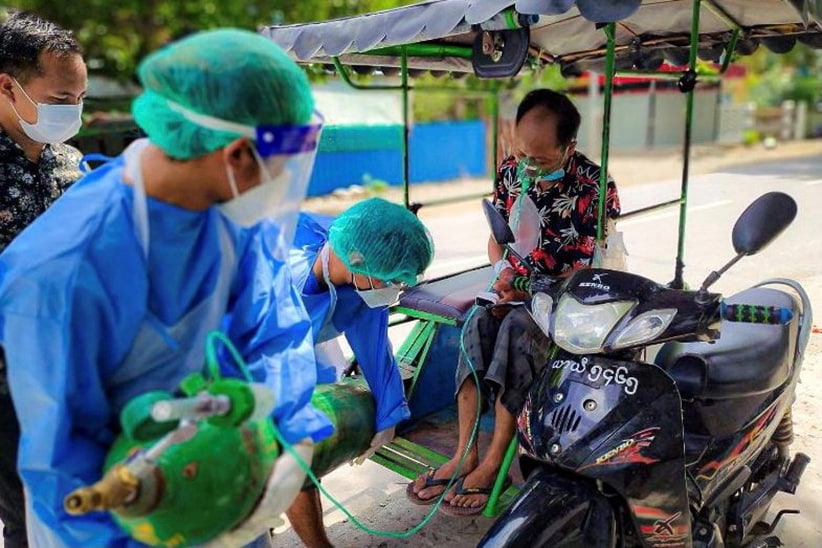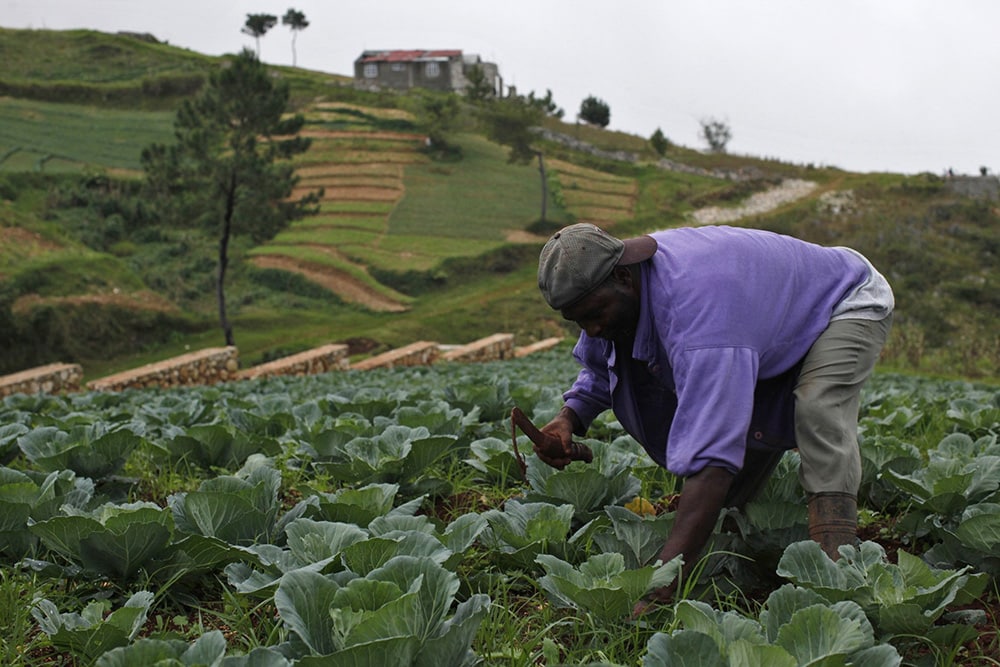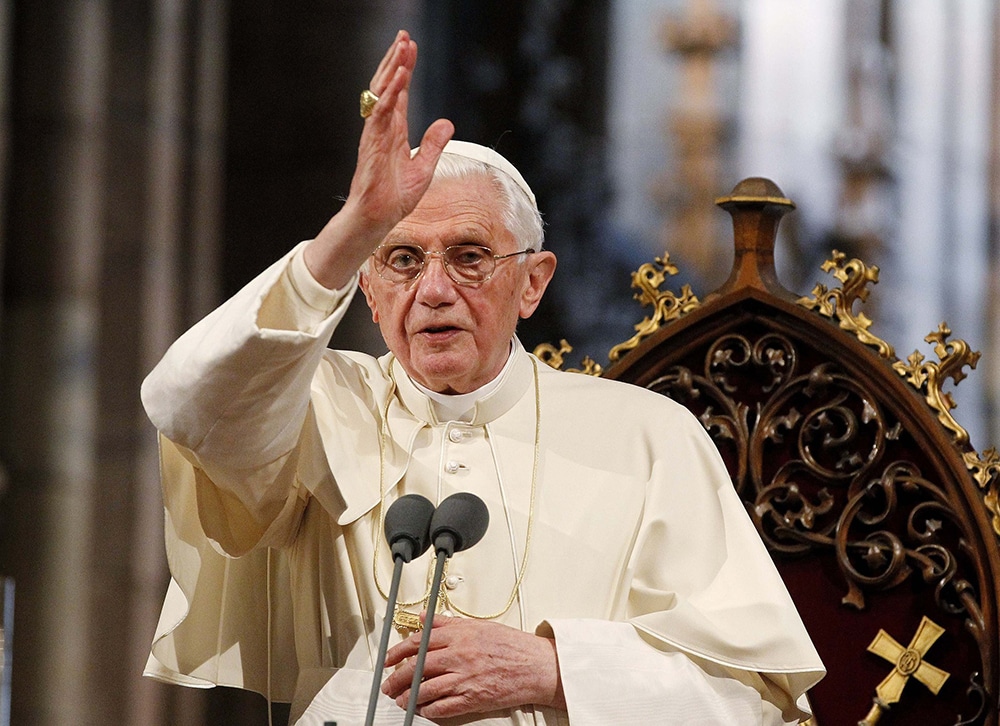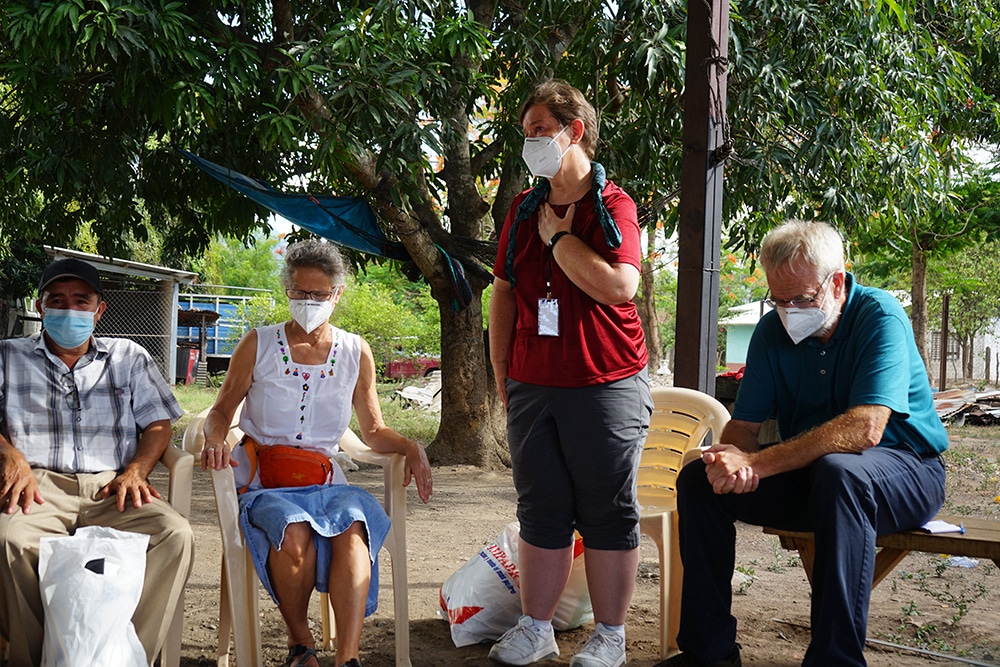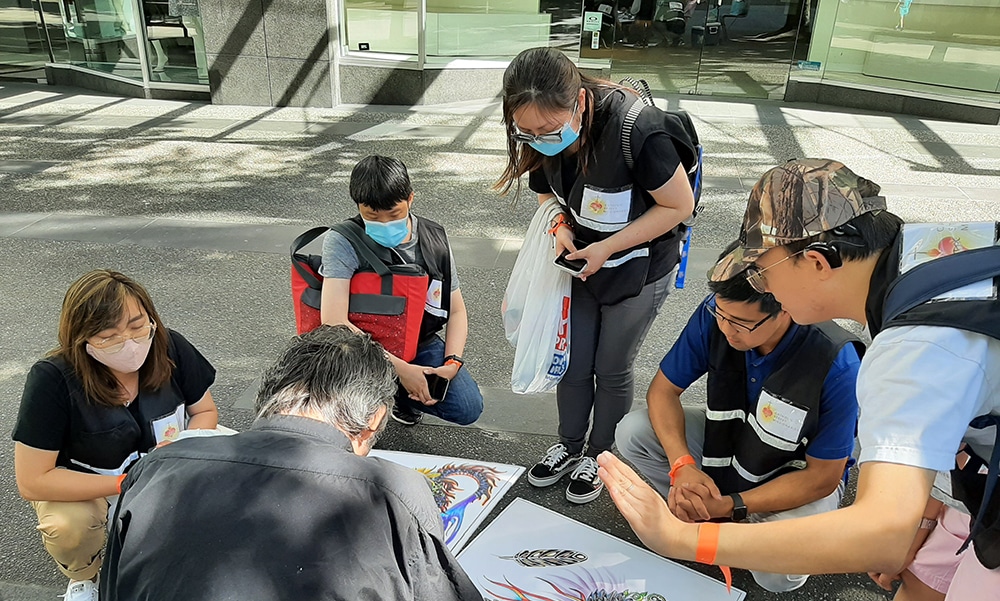It’s been five years since two Muslim extremists, swearing allegiance to the Islamic State terrorist group, stormed a Catholic parish in Normandy, France, and killed Father Jacques Hamel while he celebrated Mass.
Calls to declare Father Hamel, 85, a saint began soon after his death on July 26, 2016. Christians, non-Christians and Pope Francis declared him a martyr. In April 2017, the cause for Father Hamel’s beatification and canonization began after the pope waived the mandatory five-year waiting period.
Father Hamel was known for being dedicated to his priestly ministry despite being well past retirement age. He kept in shape and ministered to his flock in St.-Étienne-du-Rouvray, the working-class town where he spent much of his life.
“He was a very simple man, a simple priest,” said Father Paul Vigouroux, the postulator for Father Hamel’s cause for beatification.
In an interview with Our Sunday Visitor, Father Vigouroux spoke about the circumstances surrounding Father Hamel’s murder, its impact on the local Catholic community, the canonical process for his beatification and what he has learned about the priest he hopes one day to see elevated to the altars.
Our Sunday Visitor: Where does the cause for Father Hamel’s beatification stand right now?
Father Paul Vigouroux: We finished the process here and sent all the documents two years ago to Rome, and it was received last year by the Congregation [for the Causes of Saints.]
Everything was done canonically and correctly, but we did everything as rapidly as we could. Many of the witnesses were very old, and we had to [interview] them before they died. In fact, one witness, a woman who knew Father Hamel, died this year.
Our Sunday Visitor: Was there anything unique about the process given the manner in which Father Hamel died?
Father Vigouroux: Pope Francis said he was a martyr who died for hatred of the Faith. He was murdered during Mass. In the canonical process, we received the official [investigative] inquiry of the French police, which said that the murderers had intentionally targeted him.
Our Sunday Visitor: How did you come to be the postulator of Father Hamel’s cause?
Father Vigouroux: I was finishing my canonical studies, and the bishop needed a priest who knew canon law. He asked if I was interested, and I said yes. I didn’t know Father Hamel before. We were not in the same area. He was older. I was younger.
Our Sunday Visitor: How did Father Hamel’s murder impact you?
Father Vigouroux: It was hard to believe. Someone in Rome told me, “A priest of your diocese was murdered.” That’s how I learned about it. It’s something hard to understand, still something hard to believe.
Our Sunday Visitor: What was the impact of Father Hamel’s murder on the local Catholic community?
Father Vigouroux: Today, [Father Hamel’s murder] is still very hard for the Catholic community. It was and remains a very traumatic moment for the Church. Also, the area where this happened is an area where there are many Muslim immigrants. They want no animosity between Muslims and Christians. So relationships, for the most part, have stayed consistent between Christiand and Muslims.
Our Sunday Visitor: Is the extremism that resulted in Father Hamel’s murder still a problem in parts of France?
Father Vigouroux: The French police killed the murderers. An official inquiry was launched to learn how the murders happened, how the police didn’t know anything about these murderers. Many people still need answers to the questions they have, because they think the French police failed and should have known something. They believe the system failed.
Our Sunday Visitor: From interviewing witnesses, what have you learned about Father Hamel?
Father Vigouroux: He was a very simple man, a very simple priest in a poor parish. He was a priest of Vatican II who loved the Church, who wanted to serve the Church and Christ to the end of his life. He didn’t want to retire. He celebrated Mass every day, and said he celebrated Mass like it was his first time each time.
He did nothing extraordinary. His preaching was very simple. He was very collegial. His sanctity was not the kind where he did extraordinary amazing things, but ordinary things with great love. He did everything with faith and love. That is the kind of man, and the kind of priest, Father Hamel was.
Brian Fraga is a contributing editor for Our Sunday Visitor.

